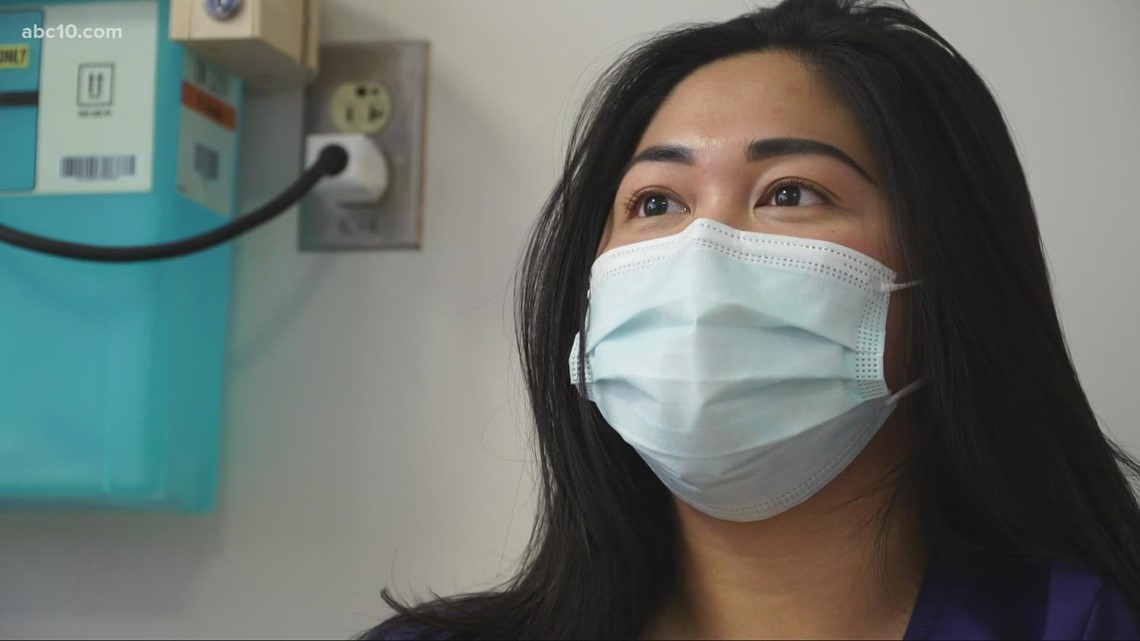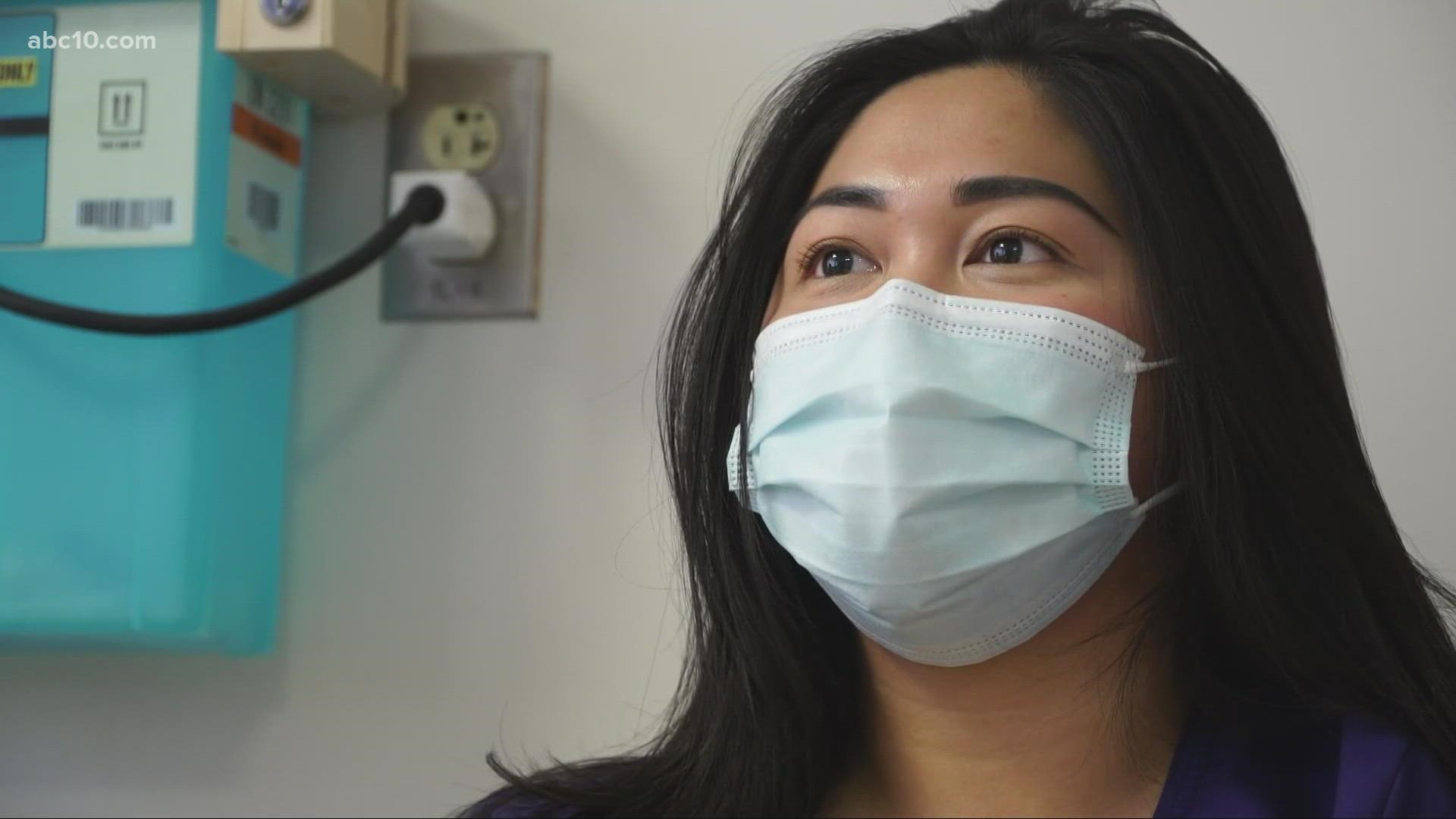SACRAMENTO, Calif. — It's a different process than what has now become the "normal" for COVID-19 vaccines; trial vaccines take around two hours to receive between paperwork and vital checks, but that wasn't going to stop Nicholeth Santiago.
"I got a call yesterday offering it and I was more than excited to say 'yes,'" Santiago said.
She is one of the first patients in the nation to receive a trial dose of the Pfizer booster vaccine. But this isn't her first vaccine trial.
"Since I was in the original study, I know what to expect and I've been down that rodeo," Santiago said.
Santiago is one of the 60 trial participants receiving the shot. Each is unsure if the shot they receive is a placebo or an actual dosage. The 60 participants are out of the 225 original Pfizer patients that received the shot during its trial in 2020 at the University of California - Davis School of Medicine.


"They've been followed all along the way, so this is additional information," said UC Davis School of Medicine Dean of Medicine Allison Brashear, M.D., M.B.A. "Now, they're here to get their booster shot."
UC Davis Health is one of 150 sites across the country doing these trials. Their data and the data from the other 149 sites are used in an overall study.
Dean Brashear said UC Davis was invited to do the trial in part because of their uniqueness compared to the other sites. She said they have a more diverse population of participants willing to partake in the trial. Initially, UC Davis had 4,000 people sign up, volunteering to do the Pfizer vaccine. From that 225 were selected, and from that now 60 will receive the booster.
"Pfizer has 150 sites and that information gets all put together and shared with the FDA and other agencies," Brashear said.
It's the same process that led to the approval of the Pfizer vaccine for emergency use, one that hundreds of thousands are now vaccinated against COVID-19 with.
The trial process of Pfizer shots, then and now, tracks antibody levels. The Center for Disease Control and Prevention (CDC) and the federal government will use this data to decide about booster shots. A booster shot is no different than the first or second dosage, just an additional third dosage.
For Santiago, it's a third shot of something she believes is both exciting and essential.
"Everyone around me, I'm just trying to help them be safe as well as myself," Santiago said. "Every shot is a dose of hope."
Continue the conversation with Andie on Facebook.

